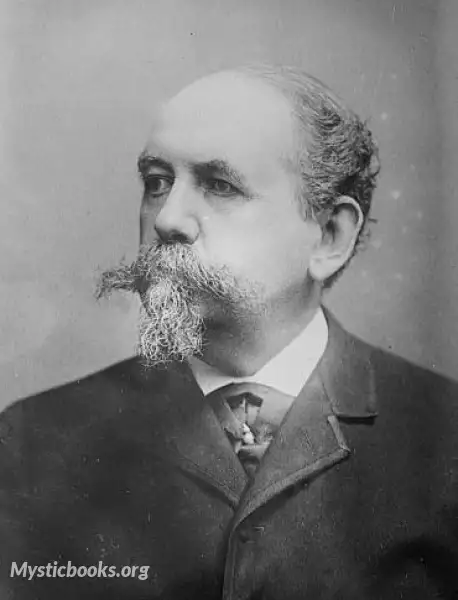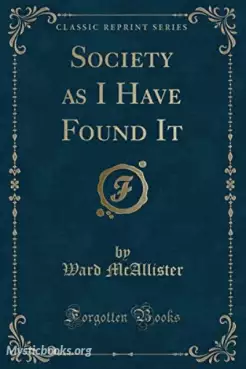
Timeline
Title
Country/Nationality
Ward McAllister
Samuel Ward McAllister was a popular arbiter of social taste in the Gilded Age of late 19th-century America. He was widely accepted as the authority as to which families could be classified as the cream of New York society (the Four Hundred). But his listings were also questioned by those excluded from them, and his own personal motives of self-aggrandisement were noted.
Born Samuel Ward McAllister to a socially prominent Savannah, Georgia, judicial family. His parents were Matthew Hall McAllister (1800–1865) and Louisa Charlotte (née Cutler) McAllister (1801–1869).
Through his maternal aunt, Julia Rush Cutler, and her husband, Samuel Ward, he was a first cousin of Julia Ward Howe and Samuel Cutler Ward, the lobbyist whose first wife Emily Astor had been the daughter of William Backhouse Astor Sr. and a granddaughter of John Jacob Astor. His maternal grandparents were Benjamin Clark Cutler, Norfolk County Sheriff, and Sarah (née Mitchell) Cutler.
In 1850, McAllister traveled to California with his father during the Gold Rush and became one of the partners in the law firm McAllister & Sons.
Ward McAllister died while dining alone, and in social disgrace for his writings, at New York's Union Club, in January 1895. His funeral, held on February 5, 1895, was well attended by many society figures of the day, including Chauncey Depew and Cornelius Vanderbilt II. McAllister is interred at Green-Wood Cemetery in Brooklyn, New York.
In 1907, Sarah was described as having been an invalid for 25 years.
Books by Ward McAllister

Society as I Have Found It
Mark Twain illustrator Dan Beard recalled discussing McAllister’s book with Twain. “It was before Webster & Company failed that Ward McAllister’s book (Society as I have Found It) appeared, and when he (Twain) sauntered into my studio one day, I said...